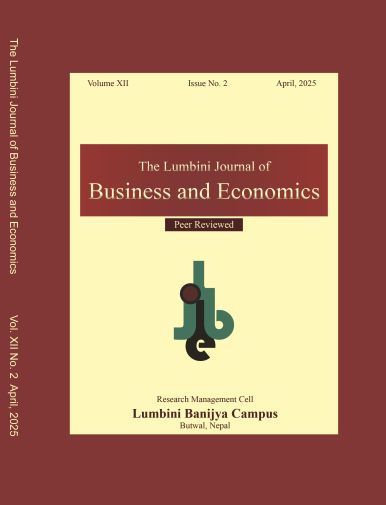Factors Affecting Entrepreneurship Intention of Tribhuvan University Students of Butwal Sub-Metropolitan City
DOI:
https://doi.org/10.3126/ljbe.v12i2.77442Keywords:
Entrepreneurial intention, self-concept, motivation, risk taking propensity, startupAbstract
Purpose: This study aims to examine the key factors influencing the entrepreneurial intentions of master’s students enrolled at Tribhuvan University in Butwal Sub-Metropolitan City.
Methods: The study employed a descriptive and causal-comparative research design. Data were collected from 228 students using a simple random sampling technique to ensure reliability and represent a diverse group in terms of background, gender, and occupational status across different semesters. A structured questionnaire based on a 5-point Likert scale was used for data collection.
Results: The results reveal that self-concept has a significant influence on entrepreneurial intention. Additionally, there is a notable disparity in risk-taking propensity and entrepreneurial preferences between male and female respondents, as well as among individuals with different occupational statuses.
Conclusion: The study concludes that students with a stronger self-concept demonstrate higher entrepreneurial aspirations. It suggests that policymakers should develop programs aimed at enhancing students’ entrepreneurial skills, while educational institutions can support students’ entrepreneurial endeavors and facilitate their transition into the workforce or startup ecosystem.




